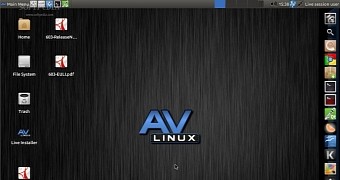Key Points
- Canonical announces support for NVIDIA CUDA toolkit, making it easier for developers to build and deploy AI apps on Ubuntu.
- CUDA will be distributed within Ubuntu’s repositories, allowing for simpler installation and updates.
- Collaboration between Canonical and NVIDIA aims to accelerate AI development and deployment on Ubuntu, used in thousands of data centers.
As a major development in the world of Linux and open-source software, Canonical, the publisher of Ubuntu, has announced its support for the NVIDIA CUDA toolkit. This move is expected to have a significant impact on the development and deployment of AI applications on Ubuntu. CUDA, a parallel computing platform and programming model, enables developers to leverage NVIDIA GPUs for general-purpose processing, accelerating large-scale numerical and tensor operations.
The CUDA toolkit exposes the GPU’s Single-Instruction Multiple Thread (SIMT) architecture, providing fine-grained control over threads, memory hierarchies, and kernels. This level of control allows developers to optimize their applications for maximum performance. With Canonical’s support, the CUDA runtime will be tested on Ubuntu, ensuring seamless integration and reliability.
The collaboration between Canonical and NVIDIA is not new, as Ubuntu has been used in thousands of data centers for years. However, the decision to distribute CUDA within Ubuntu’s repositories marks a significant milestone. Developers will no longer need to download the CUDA Toolkit directly from NVIDIA’s website. Instead, they can easily install and update CUDA using Ubuntu’s package manager, making it a more streamlined process.
This development is expected to accelerate AI development and deployment on Ubuntu. By providing easier access to CUDA, Canonical is empowering developers to build, iterate, and deploy their AI applications more efficiently. The Ubuntu community can expect to see a surge in innovation, as developers take advantage of the NVIDIA GPUs and CUDA toolkit to create more sophisticated and powerful AI models.
The implications of this announcement are far-reaching, with potential applications in fields such as scientific research, healthcare, and finance. As AI continues to transform industries, the ability to develop and deploy AI applications quickly and efficiently will become increasingly important. With Canonical’s support for NVIDIA CUDA, Ubuntu is solidifying its position as a leading platform for AI development.
As the Ubuntu community begins to explore the possibilities of CUDA and NVIDIA GPUs, it will be exciting to see the innovative applications and solutions that emerge. With Canonical’s commitment to open-source software and NVIDIA’s expertise in AI computing, the future of AI development on Ubuntu looks promising. Developers can now focus on creating cutting-edge AI applications, knowing that they have access to the tools and resources they need to succeed.
Upgrade your life with the Linux Courses on Udemy, Edureka Linux courses & edX Linux courses. All the courses come with certificates.








